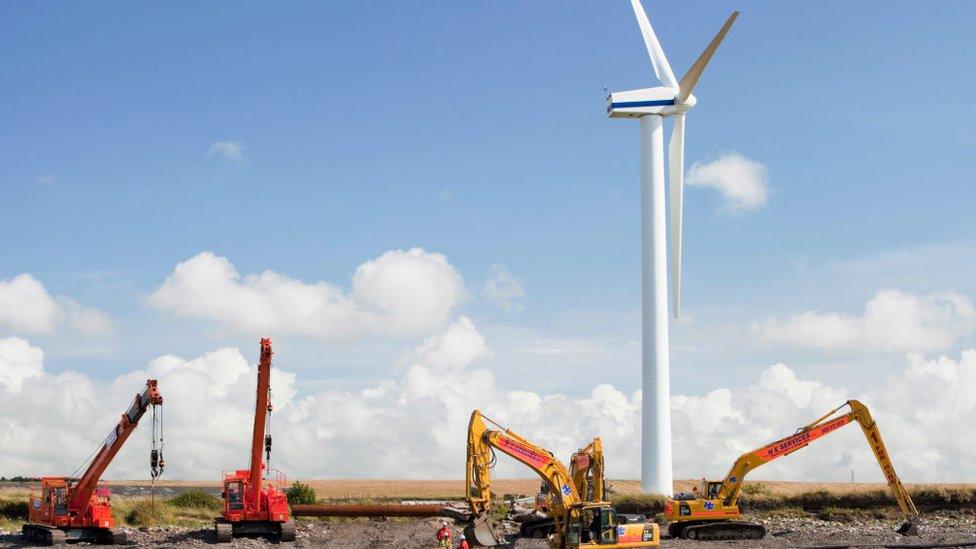Why Labour junked its £28bn green investment pledge
- Published
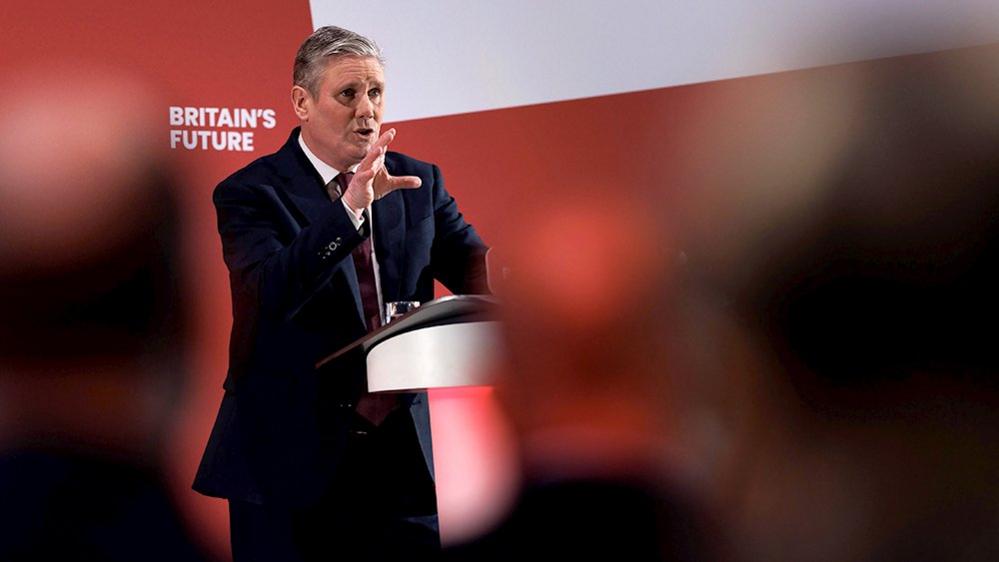
Sir Keir Starmer has U-turned on Labour's £28bn green investment pledge
It was first announced two-and-a-half years ago.
Sir Keir Starmer had had a bumpy few months, including the moment when his leadership was arguably in greatest jeopardy, after Labour lost a by-election in Hartlepool.
The party needed a big, eye-catching idea, as Sir Keir sought to define himself as an opposition leader and begin the colossal task of hauling Labour back to competitiveness after the crushing election defeat in 2019.
But by last summer, the policy had been watered down. By the autumn, senior figures, including the Shadow Chancellor Rachel Reeves, were swerving mentioning £28bn in public.
And now today the number is being lobbed in a skip.
Labour has been in a public tangle and a private tussle over the number attached to what they call their Green Prosperity Plan recently.
It had got to the point where the only thing that was clear about the idea of spending £28bn a year on green investment was it wasn't remotely clear if they were still committed to it.
One day last week on the Today Programme on BBC Radio 4, the Shadow Business Secretary Jonathan Reynolds was asked almost 28 billion times whether the number had been ditched.
He didn't say yes and he didn't say no.
But the words "twenty" and "eight" did not pass his lips.
And Sir Keir Starmer and the shadow chancellor Rachel Reeves pretty much contradicted each other in public.
Like Mr Reynolds, Rachel Reeves was also rather numerically tongue tied when she was repeatedly asked about the number on Sky News. But Sir Keir then plainly restated the policy, including the number.
Transparently, Labour was in a mess.
Any hope of waiting until after the Budget, in four weeks time, when they may have been able to blame the books for no longer being able to afford their plan, looked totally unsustainable.
They were going to have to answer the question with a straight yes or no, with none of the complex contortions. And so away from the cameras they have been wrestling with what to do.
And they have concluded the number, but not the policy itself, is an albatross around their neck - and so it is a goner. How the policy is delivered in the absence of the number is one of the many questions they will now face.
The party reckons that emphasising their commitment to economic credibility is more important
Senior figures are conscious that many voters perceive economic credibility to be a Labour weakness, and so want to address this head on.
But this slow motion U-turn will burnish the arguments of Sir Keir's critics - not least the Conservatives - who claim he is forever changing his mind and doesn't believe in anything.
Related topics
- Published8 February 2024
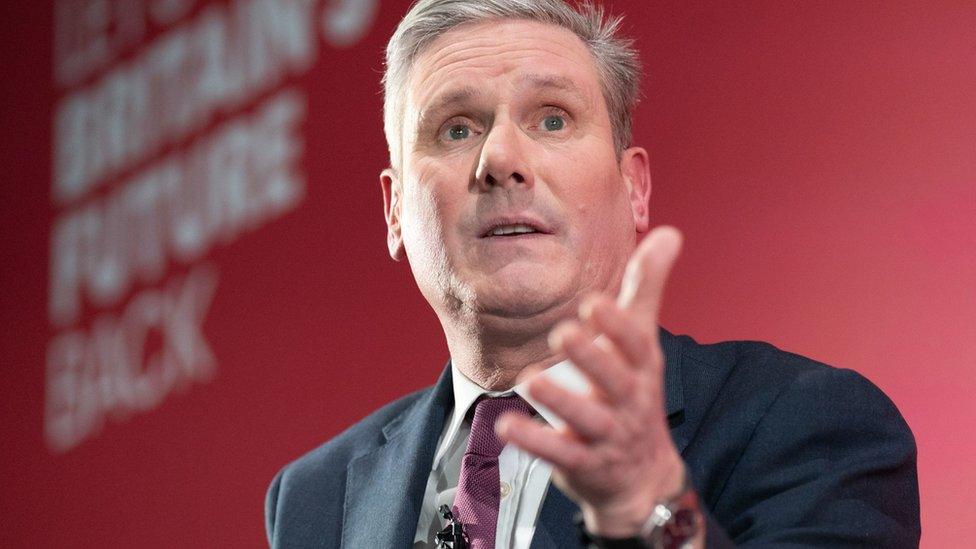
- Published5 January 2024
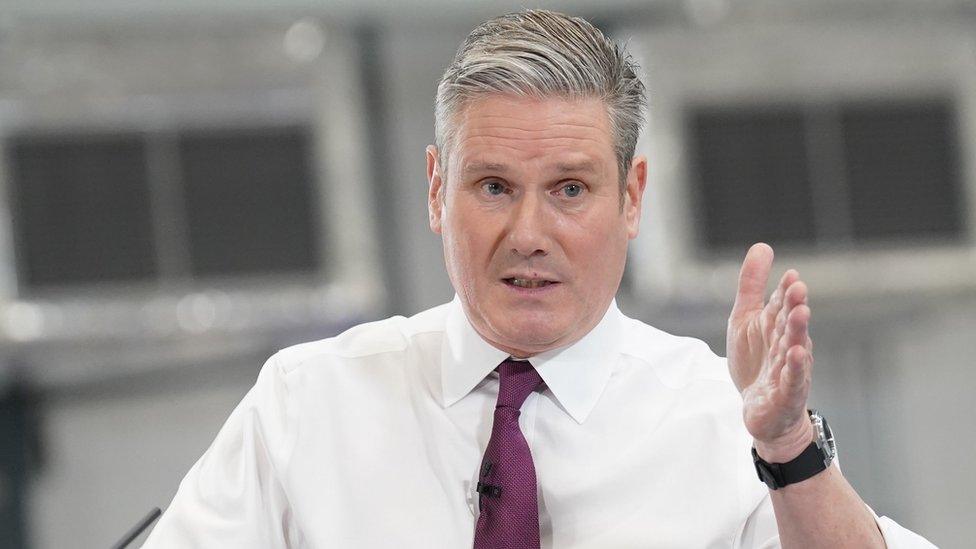
- Published9 June 2023
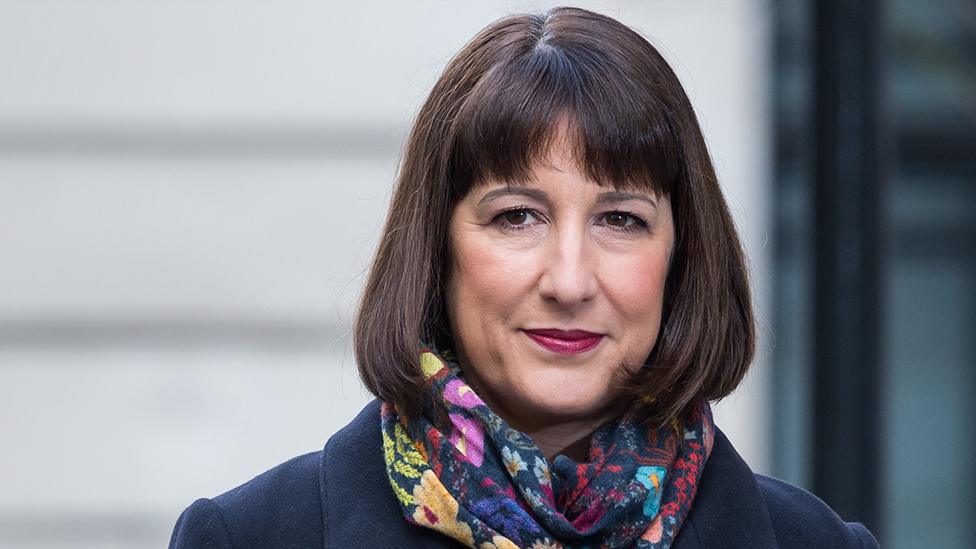
- Published9 June 2023
